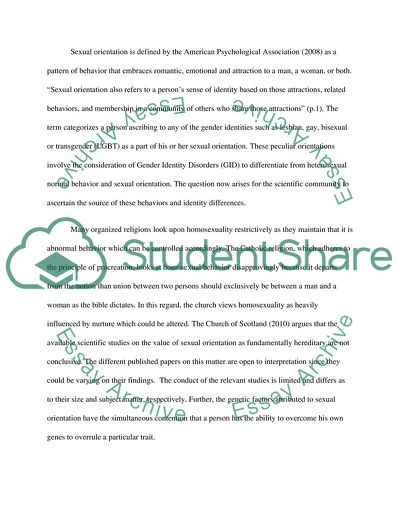Cite this document
(“Nature vs. Nurture Debate in Understanding Sexual Orientation Essay”, n.d.)
Retrieved from https://studentshare.org/psychology/1672167-see-the-guide
Retrieved from https://studentshare.org/psychology/1672167-see-the-guide
(Nature Vs. Nurture Debate in Understanding Sexual Orientation Essay)
https://studentshare.org/psychology/1672167-see-the-guide.
https://studentshare.org/psychology/1672167-see-the-guide.
“Nature Vs. Nurture Debate in Understanding Sexual Orientation Essay”, n.d. https://studentshare.org/psychology/1672167-see-the-guide.


